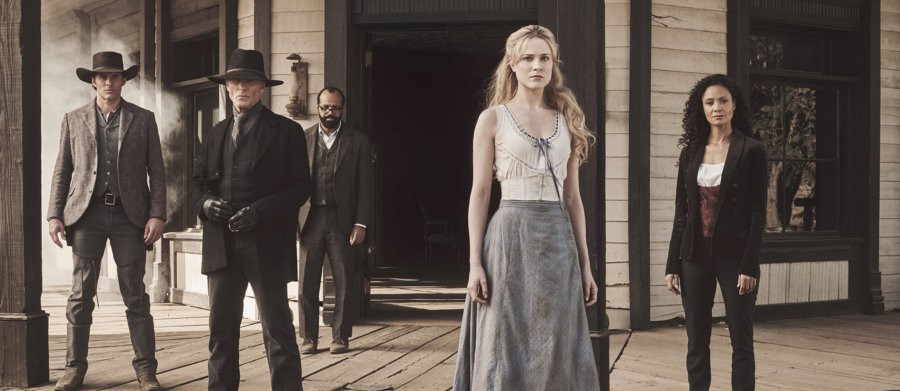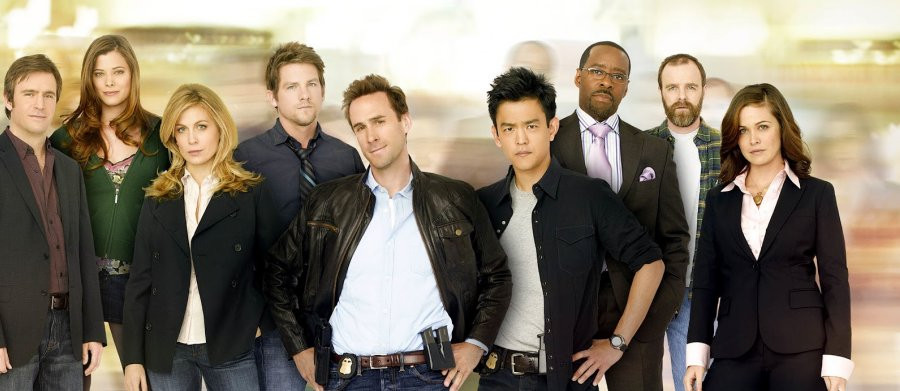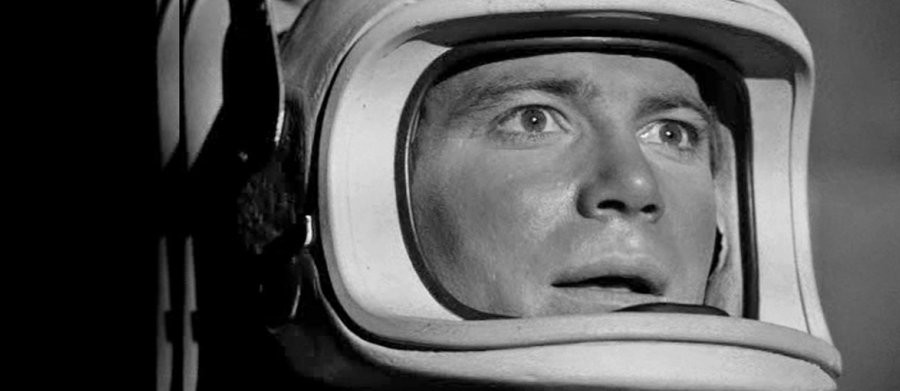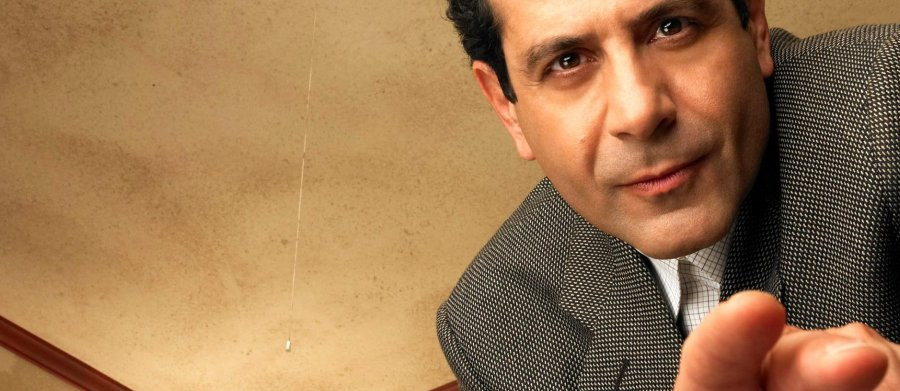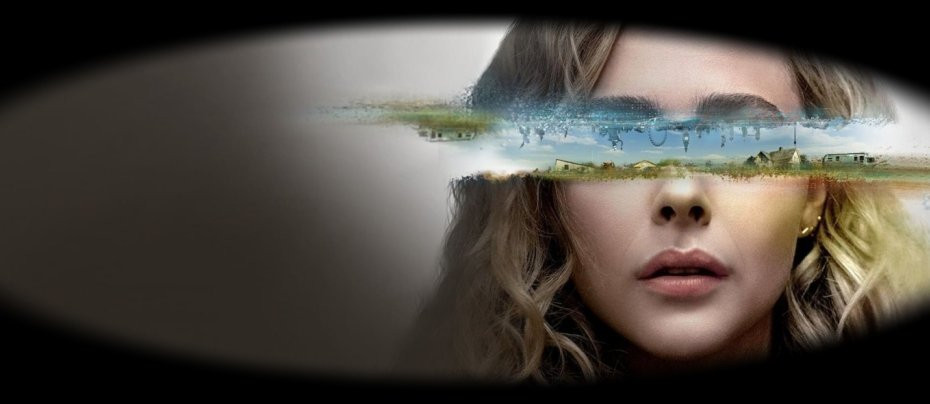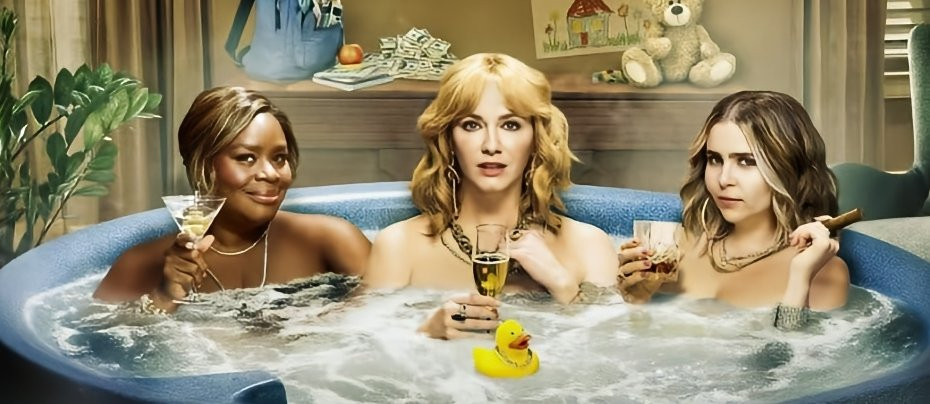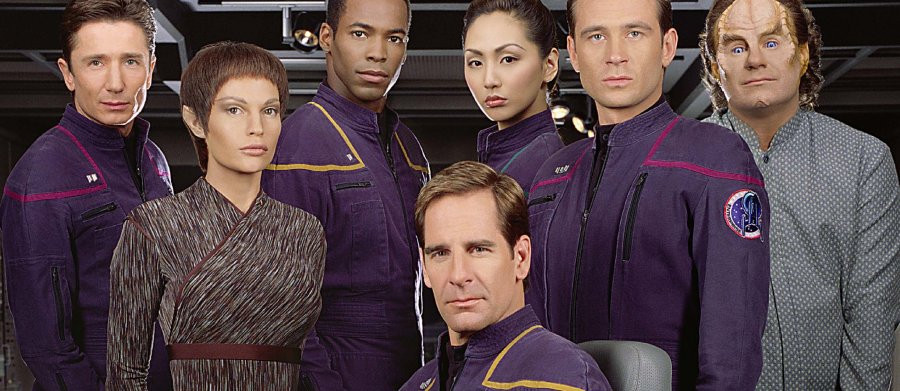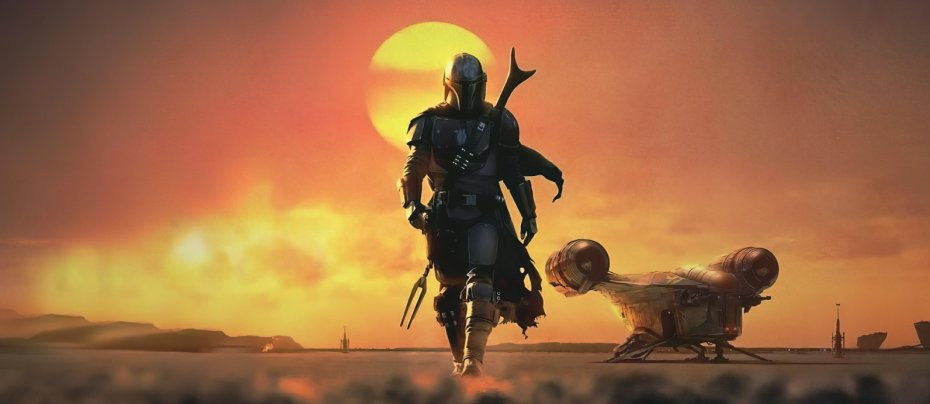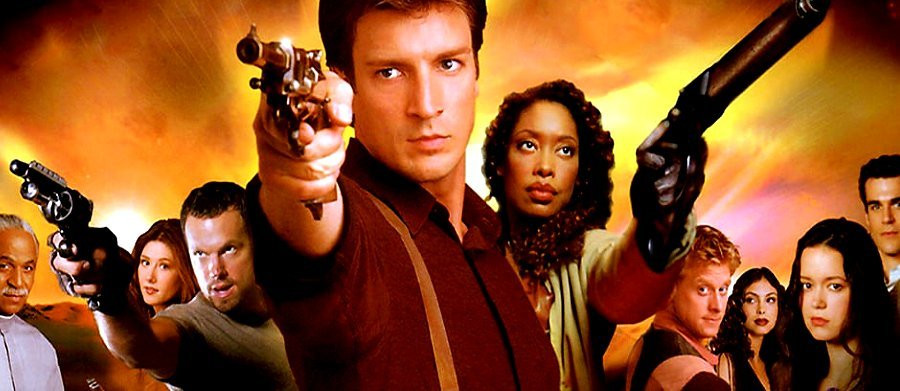
Firefly
2002 - United StatesPolls asking viewers which programmes they most regret being cancelled before their time almost invariably put Firefly at or near the top. Indeed, Firefly has become something of a byword for stupidity on the part of network executives and bureaucrats in general.
It is doubly justified. The same idiots responsible for its cancellation, ostensibly on the grounds of disappointing ratings, were also responsible for the poor scheduling and marketing that led to that alleged disappointment.
For the show itself is a little masterpiece - sadly, only a little masterpiece because only 14 episodes were ever made. Watching it is like admiring a beautiful Hilliard miniature and wondering what it would look like if Holbein had been given the opportunity to blow it up to a full-size portrait.

It was arguably the finest work of Joss Whedon's Golden Age, when he was also producing Buffy the Vampire Slayer and Angel. He had by then perfected his winning formula of fast action, complex story arcs, likeable characters, big ideas neatly packaged, and slick, quotable dialogue. If Shakespeare had been working in American episodic drama around the turn of the Millennium, he would have been Joss Whedon.
The premise of Firefly is brilliantly simple: it is the anti-Star Trek. Like the 'Enterprise,' the 'Serenity,' a 'Firefly' class spaceship, is wandering around the edges of the galaxy, but it is not crewed by a military hierarchy, all fanatically devoted to the ideology of the State. Its crew and permanent passengers are instead a diverse bunch of misfits trying to scrape a living and keep flying.

The benevolent Federation of 'Star Trek' becomes the Alliance, a superficially democratic organisation that seems to command majority support but which has a definite dark side to its security apparatus. This was a daring idea in 2002, when the War on Terror commanded widespread popular support in America. It also prompts the subversive thought that there was always something slightly, well, fascistic about the set up in Star Fleet. Although Whedon's personal politics are said to tend to the left, Firefly can easily be viewed as the libertarian answer to Gene Roddenberry's antiseptic uniformed Utopia.
The tragedy of Firefly is that Whedon went to a great deal of trouble in those first 14 episodes to sketch out both a fully realised universe and three-dimensional characters in order to give himself a broad canvas on which to tell lots of different stories - which were never destined to be told.
Everything in Firefly has texture, like impasto, the sense that there is something underneath it and then something underneath that.
In the 'Firefly' universe, the United States and China became the two dominant powers, so everyone speaks a "lingua franca" of American English with the odd Chinese phrase thrown in casually. Later, as humanity spread out into space, there was tension, and eventually a war, between the centralising Alliance and outlying planets which wanted to retain their independence.
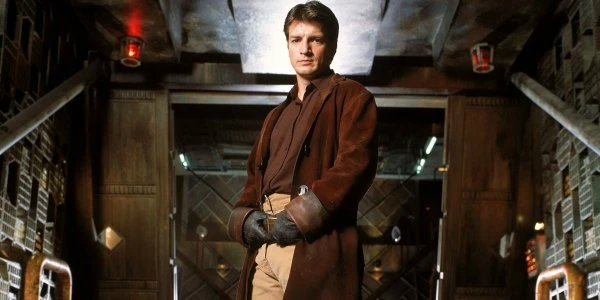
The Old West is frequently evoked on the relatively primitive outlying planets and the war is obviously analogous to the American Civil War. The Captain of the 'Serenity,' Mal Reynolds (Nathan Fillion), was on the side of the 'Independents' - equivalent to the Confederates but without the slavery - and is not happy about losing. It is significant that the 'Serenity' is named after a battle at which he was present and which did not go well. Mal is anything but serene.
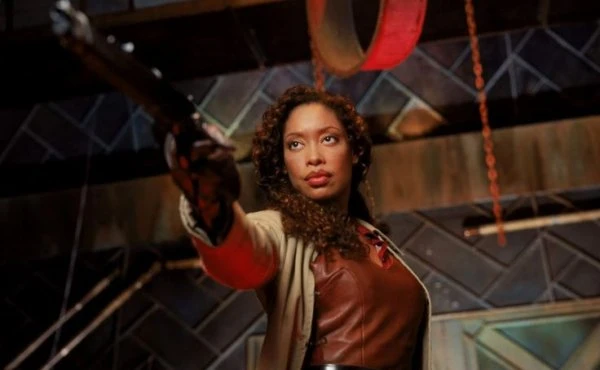
Also on board are his loyal second-in-command (Gina Torres), her unlikely pilot husband (Alan Tudyk), a cheery chief engineer (Jewel Staite), a priest with a past (Ron Glass), a brilliant young physician on the run (Sean Maher), his seriously strange sister (Summer Glau), and an extremely high class call girl (Morena Baccarin). Best of all is Adam Baldwin - no relation - as a hardened mercenary with a superficial resemblance to Baldwin's scene stealing "Animal Mother" in "Full Metal Jacket.' The episodes in which we find out that there is more to him than might appear are particularly enjoyable.

A glance at the impressive biographies of most the nine regulars - and guest stars, including a young Christina Hendricks - both before and since confirms that casting was, again, another of Whedon's great strengths. The production values are also strong: someone put a lot of money into this up front, which makes the decision to cancel even more incomprehensible.

The show got belated closure of a sort when fan pressure led to the production of the feature film 'Serenity.' The film was, however, only moderately successful, both commercially and dramatically, and the way it ended effectively closed the door on the possibility of Mal and the gang going back to just wandering around, having adventures. We are left to wonder what ideas Joss Whedon might have had for stories if the show had run its natural course.
About the reviewer: John Winterson Richards
An experienced freelance writer as well as a consultant, John Winterson Richards has been commissioned and paid to write over 500 articles in print and online. He was a regular guest on the Mind Your Own Business podcasts and a major contributor to that website's blog.
He is the author of 'The Xenophobe's Guide to the Welsh' and the 'Bluffer's Guide to Small Business.'
Under the name Charles Cromwell, John is the author of three novels, 'Young Herod,' 'Seven Days in Jerusalem,' and 'Leonardo Investigates: Death in Pisa.' All can be downloaded from Amazon.
He is the co-writer, with Andrew Harman, past Head of History at Filton High School, of 'The Context of Christ: the History and Politics of Judea and Rome, 100 BC - 33AD', also available on Amazon Kindle.
Seen this show? How do you rate it?
Seen this show? How do you rate it?
Published on October 28th, 2019. Written by John Winterson Richards for Television Heaven.


